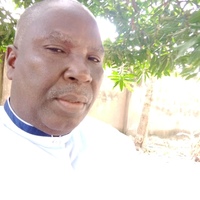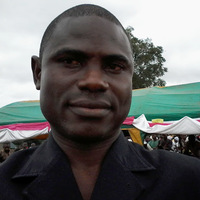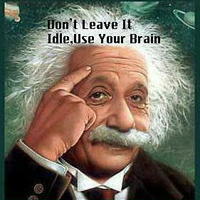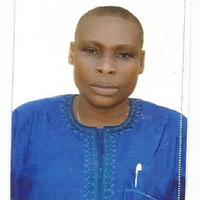
Alloy Ihuah
Dr. Alloy S. Ihuah is Professor of Philosophy, Benue State University, Makurdi-Nigeria. He holds the Membership of many Learned Societies
less
Related Authors
evandaufasu aufasu
Benue State University, Makurdi
Terhile J . Ahoo
Benue State University, Makurdi
Yomi Olusegun-Joseph
Obafemi Awolowo University
Dr. Andrew Philips Adega
Benue State University, Makurdi -Nigeria








Uploads
Papers by Alloy Ihuah
Conceptualization of personhood by Menkiti’s (1984) Person and Community in African
Traditional Thought, Gyekye’s (1992) Akan Concept of a Person and Mbiti’s (1970) African
Religions and Philosophy has shown that communal intimate belongingness is mostly limited
to a micro community more than the totality of a larger African community. Within the
context of this communal living, they have argued that, an individual owns no personality,
and only becomes a person through social and ritual incorporation. For these scholars,
personhood has been pictured as a state of life that is acquired “as one participates in
communal life through the discharge of the various obligations defined by one’s stations”
(Menkiti, 1984 p.176). Personhood they say, is a quality acquired as one gets older. Hence,
according to them age is the determinant factor. This paper argues that, this mode of thinking
not only ignores the essentials of personhood, namely, self-determination and the rights of the
individual but it also, exposes the overbearing mode of the community and scuttles the
inherent freedom and primacy of the individual thought and his right to question communal
ideas. The youth has a different point of view from that of an older individual, though both
are defined by the quality of personhood. African wisdom literature upholds that life in its
existential meaning is human fellowship and solidarity among individuals though, the rights
of individual persons and freedom of self-expression within the communities are not in doubt.
The paper argues the conclusion that, while communal ethos matures the individual in the
community, such conclusion does not have ontological and epistemological precedence over individual persons. In his lone level, the individual experiences varying modes of competing epistemologies that activates his moral arsenals to evaluate, protest, distance and effect reform on some features of the community to ingratiate his widely varying needs and interests.
Key Words: Communitarianism, personhood, personal identity, ethical maturity, human well-being, African thought, African philosophy, African heritage, inter-cultural philosophy, African studies.
Talks by Alloy Ihuah
i. Historicize the concept of ‘fake news’ here referred to as post-truth.
ii. Interrogate the concept of ‘information’ and its goal in human affairs
iii. Evaluate the nexus between ‘truth’ values in ‘information’, ‘Misinformation’ and ‘dis-information’
iv. Situate the role of Philosophy in the era of post-truth.
Drafts by Alloy Ihuah
Conceptualization of personhood by Menkiti’s (1984) Person and Community in African
Traditional Thought, Gyekye’s (1992) Akan Concept of a Person and Mbiti’s (1970) African
Religions and Philosophy has shown that communal intimate belongingness is mostly limited
to a micro community more than the totality of a larger African community. Within the
context of this communal living, they have argued that, an individual owns no personality,
and only becomes a person through social and ritual incorporation. For these scholars,
personhood has been pictured as a state of life that is acquired “as one participates in
communal life through the discharge of the various obligations defined by one’s stations”
(Menkiti, 1984 p.176). Personhood they say, is a quality acquired as one gets older. Hence,
according to them age is the determinant factor. This paper argues that, this mode of thinking
not only ignores the essentials of personhood, namely, self-determination and the rights of the
individual but it also, exposes the overbearing mode of the community and scuttles the
inherent freedom and primacy of the individual thought and his right to question communal
ideas. The youth has a different point of view from that of an older individual, though both
are defined by the quality of personhood. African wisdom literature upholds that life in its
existential meaning is human fellowship and solidarity among individuals though, the rights
of individual persons and freedom of self-expression within the communities are not in doubt.
The paper argues the conclusion that, while communal ethos matures the individual in the
community, such conclusion does not have ontological and epistemological precedence over individual persons. In his lone level, the individual experiences varying modes of competing epistemologies that activates his moral arsenals to evaluate, protest, distance and effect reform on some features of the community to ingratiate his widely varying needs and interests.
Key Words: Communitarianism, personhood, personal identity, ethical maturity, human well-being, African thought, African philosophy, African heritage, inter-cultural philosophy, African studies.
i. Historicize the concept of ‘fake news’ here referred to as post-truth.
ii. Interrogate the concept of ‘information’ and its goal in human affairs
iii. Evaluate the nexus between ‘truth’ values in ‘information’, ‘Misinformation’ and ‘dis-information’
iv. Situate the role of Philosophy in the era of post-truth.